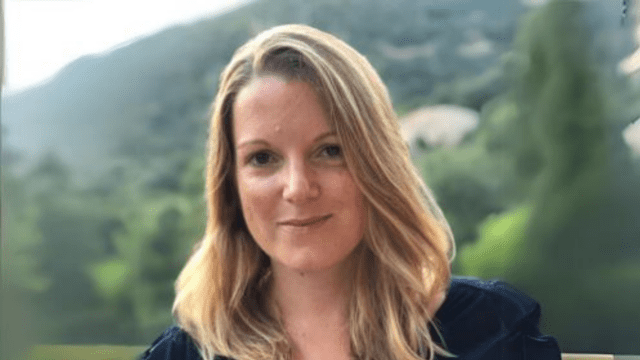From Economic Science to Global Economic Governance
A former student of the Department of Economics at ENS Paris-Saclay from 2005 to 2009, she specialized in finance and applied her skills to various consulting and governance organizations, including investment banks, fintech startups that compete with banks by offering optimized financial services, and finally the Bank of France since 2014.
My current job allows me to apply major concepts of economic and financial theory to monetary policy choices; it's a good balance between theory and practice.
Pauline Lez, where does your interest in economics come from?
In my opinion, economics should help us better understand everyday things, like price movements, the cost of borrowing, unemployment, or a state's budget. It was this curiosity that led me to study economics after high school and later directed me towards a more operational career, as academic economics seemed too theoretical and detached from reality.
What role did your time at ENS Paris-Saclay play in your career?
I wanted to study economics, and entering ENS was the best option available to me after completing my preparatory class [D2, in economics and management, at Lycée Turgot in Paris], as the school's reputation ensured quality education and interesting career prospects. My admission to ENS was a surprise; I didn't think I would pass the entrance exam and had also applied to business schools.
My years at ENS undeniably steered my career towards economics and public service.
What were the major steps in your professional journey?
After my time at ENS, I took a two-year personal leave to explore the corporate world. I did a VIE [Volontariat International en Entreprise] in London at Société Générale as an economist in investment banking from 2009 to 2010.
Upon returning to Paris, I decided to continue working in the corporate sector by joining Finance Active, a Fintech specializing in assisting European local authorities and companies in managing their financial risks (debts, foreign exchange, guarantees), as an economist, strategist, and training manager.
In late 2014, I joined the Bank of France as a market economist in the Financial Stability Department, where I worked on identifying risks to the French financial system. My entry into the Bank of France was decisive because it is an institution offering many opportunities for advancement. One can have a long career there without ever getting bored and constantly discovering new topics in a highly stimulating environment.
In 2019, you became responsible for collateral strategy and eligibility of securities within the Monetary Policy Implementation Directorate at the Bank of France. What does this role entail?
I lead a team of 10 people who negotiate and implement monetary policy decisions related to collateral, particularly the eligibility of securities as collateral for Eurosystem refinancing operations.
This involves exchanges with other national central banks in the euro area and the ECB [European Central Bank] to decide on adapting the operational framework of monetary policy to market conditions or regulatory changes. We then implement these changes to select French securities that will be accepted by the Eurosystem. To inform our decisions, we prepare studies and projections using monetary policy data and participate in empirical research.
You hold a position of responsibility at the heart of an institution central to the European economy. Is it challenging on a daily basis?
Implementing monetary policy is a core issue for a central bank, so it's exciting to participate in decisions made for the entire Eurosystem. It also involves a lot of pressure, tight deadlines, and a heavy workload.
Fortunately, the framework doesn't change from day to day, which allows for in-depth exploration of subjects and expertise acquisition. However, during times of crisis, things can evolve very quickly and require a significant investment of work.
Do you have any prospects for advancement, within the Bank of France or elsewhere?
I want to remain in activities related to monetary policy in the coming years. The Bank of France offers many opportunities for advancement and also positions abroad or in international institutions, which could interest me in the longer term.

Comments0
Please log in to see or add a comment
Suggested Articles


